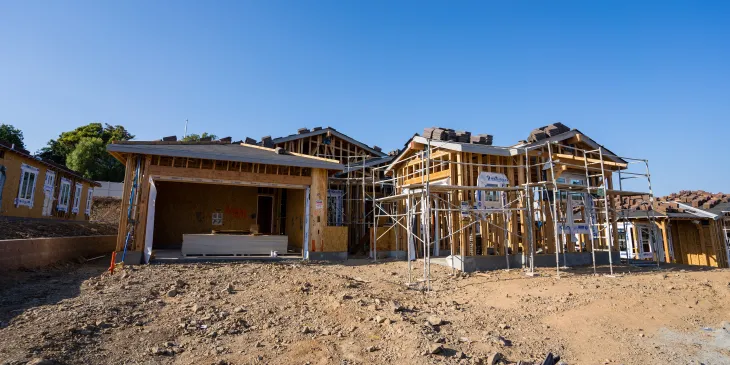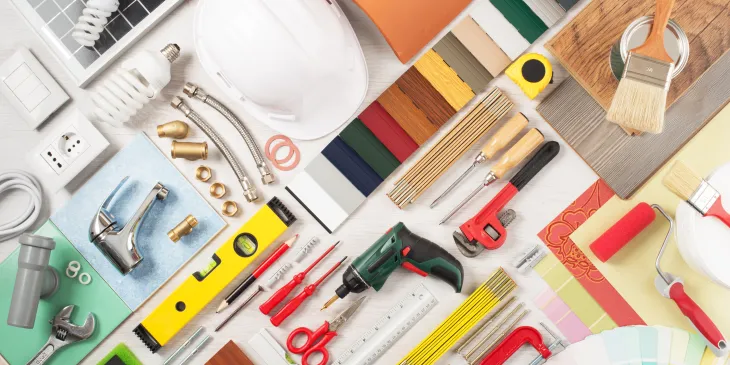
During the pandemic, the demand for homes and home prices have soared with little to no relief for home buyers. It’s the nature of a seller’s market to have high prices and high demand for homes.
This trend leads to exceedingly low pre-existing home inventory and tough competition for what’s available.
The cost of renting a home isn’t any better, with rents rising across the nation. CoreLogic, a global property intelligence service in Irvine, California, reported a 7.8% hike in rental prices during 2021, and these prices continue to soar. This increase in rental prices makes it more challenging and competitive to obtain a rental property or unit.
Problems such as these compound the issues home buyers face. Thankfully, there is another solution that home buyers are considering – whether building your home makes more sense in today’s economy.
Cost Comparison
If existing home inventory in your area is low, then building your own home might make sense. Nonetheless, how much does it really cost to build your own home vs. buying a pre-existing home, and how much time can construction take?
HomeAdvisor, a national contractor matching service, reports that the national average to build a house ranges between $100 and $200 per square foot of living space. This amount could stretch over $500 per square foot when building custom or luxury homes. Considering 2,300 square feet is the average home size, you could be looking to spend $230,000 to $460,000. This amount is before purchasing land or other incidentals such as labor and building permits.
With these figures in mind, the average cost of a pre-existing home is currently hovering around $375,000, but this also depends on the area, home size, and other factors. There’s little difference between the price alone. In some cases, you might spend a little more to build your own home, but in others, you might save on cost. The more luxurious or custom your home, the more you can expect to spend.
The area also matters. Building a home in an area with high market values will reflect those values in your construction costs. What’s more, the type of home matters. Conventional brick and mortar homes often cost less than eco-friendly homes, but usually, there are long-term savings to consider when looking at sustainable options.
Finally, the size of your house matters. The bigger the home, the more materials you’ll need to build it and the longer it will take.
Always do your research before beginning and, if you’re looking to conserve on costs, talk with your contractor. They might have a few suggestions to help your home better fit your budget.
Construction Time
Building a house takes time. It takes time for your contractor to obtain all the necessary permits, finalize the plans, build your home, and complete the final walk-through. In 2019, the average length of time for a new build was seven months. With supply chain delays and increased construction costs, this may be slightly longer in 2022.
This process might seem like a significant time investment, especially considering it can take anywhere from 7-45 days to close on a pre-existing home. However, you’ll first need to find a suitable pre-existing home that fits your family, your budget, and your preferences. In today’s highly competitive market, this has proven challenging for many. In fact, it might take you just as long to find a suitable pre-existing home as it would to build your own home.
Benefits of Building a New Home
Building your own home comes with benefits beyond those of a pre-existing home. You have more control over the following:
- Where you live
- How much land you have
- The type of house
- The size of your house
- Number of bedrooms
- Level of customization
- Cost
The only thing left to do is determine how you’ll finance your new construction home.
Financing Your New Home
Financing your new home with Extraco Banks is easy with options for lot, land, and construction loans.
Construction loans are short-term loans, generally with a 12-month term. You’ll pay interest only during home construction, with a final balloon payment due once the term ends. However, suppose you plan on making this home your permanent residence. In that case, you can refinance your construction loan into a permanent home loan with a monthly mortgage payment once construction is complete.
Opening the door to your own home, even in a competitive market, is easier than you think. Although buying a pre-existing home might seem out of reach when demand for homes and prices are high, there are other options to help you get into a home of your own. Additionally, building your home comes with many benefits. You have more freedom to choose how, when, and where you’ll build your home.
Finally, financing a new home is easy with Extraco Banks’ construction loans, and you can later refinance your construction loan into a permanent mortgage once your home is completed. That leaves one remaining question: What are you waiting for? Call today to get pre-approved for your construction loan.
Ready to learn more about building your dream home?
Extraco’s mortgage experts are ready to answer any of your questions and walk you through the homebuilding process.
Learn More




